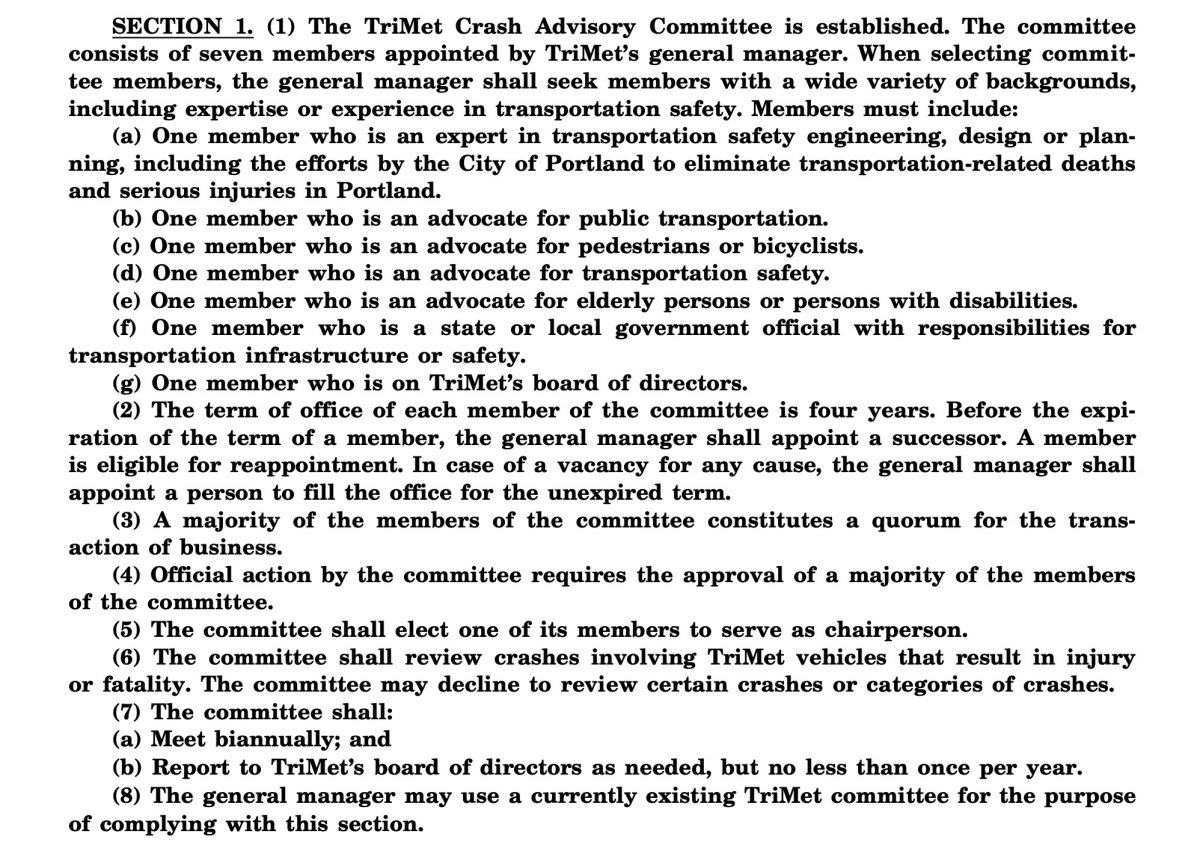
(Photo courtesy Darla Sturdy).
The dogged determination of one advocate has forced TriMet to create a new committee to review all injury and fatal crashes involving their vehicles.
Darla Sturdy, a volunteer with Families for Safe Streets, turned anguish over her son’s death in 2003 into activism that has now led to passage of two bills through the Oregon Legislature. In 2007 she passed a bill requiring TriMet to study and create recommendations for how to make dozens of light-rail crossings safer. That bill became law four years after her 16-year-old son Aaron Sturdy-Wagner was killed while biking through one of them.
And on June 30th of this year, Sturdy’s bill passed just one hour before the end of the session. Senate Bill 1053 establishes a seven-member TriMet Crash Advisory Committee. Originally intended to be completely independent of TriMet with members appointed by the Oregon Transportation Commission, the final bill allows the agency’s general manager to appoint the members. The bill also mandates that committee members must come from a wide variety of experiences and professional expertise including: a disability rights advocate, a biking and walking advocate, a government agency staffer, a vision zero expert from Portland, and a TriMet board member.
“They didn’t want to do it… Then I said, politics or lives?”
— Darla Sturdy
Sturdy fought for this committee because she doesn’t trust TriMet. “TriMet judges their own accidents,” she repeated to me several times on the phone today. It’s true. Until now, the agency has always investigated themselves when one of their light rail or bus operators hurts or kills someone.
Reached today on the phone, Sturdy said it took six months of work to pass the bill. It died twice and went through three bill numbers before it was signed by Governor Kate Brown last week. At each step, Sturdy didn’t take no for an answer. “I probably met personally with all but four legislators in that building,” she told me today from a conference she’s attending in Dallas. At one point Sturdy asked her House representative to do a “bill pull” — legislative jargon for pulling a bill directly out of committee for a vote on the floor — something that’s not done very often. “They didn’t want to do it because other lawmakers might frown on it,” she shared. “Then I said, politics or lives?”
Advertisement


(Photo: J. Maus/BikePortland)
Eventually Sturdy’s relationships paid off and she was able to get her bill on the floor. It passed unanimously an hour before the gavel came down for good.
“I knew God would take me to the end, but I didn’t realize he’d take me all the way to the last hour,” she said with a laugh.
Sturdy knows her work isn’t done. This unrelenting advocate was at TriMet’s Board Meeting last night. “I looked at the GM (Doug Kelsey) and said, ‘You’re going to be picking this committee’. And I told the board, ‘You better make sure they come from the outside’.”
For their part, TriMet was officially neutral on the bill. In a letter to lawmakers dated June 19th, the agency’s director of government affairs, Bernie Bottomly wrote, “We would like to express our reservations regarding the potential ramifications and unintended consequences of the proposed legislation… TriMet concerns relate to how this legislation may conflict with other requirements placed on the agency by both state and federal law regarding safety Management and reporting, civil liability mitigation, privacy rights of employees, attorney-client privilege and public records.”
In the end, Sturdy hasn’t lost sight of why she devotes so much of her life to this fight. “My son would be proud of me. He had a saying, ‘Dream big, don’t let the little things get in your way.’ To me that meant I can’t save him, but I can save others,” she said, holding back tears. “That’s what it is. To make that change, make it better. I believe we all have a purpose and I found mine in safety advocacy.”
— Jonathan Maus: (503) 706-8804, @jonathan_maus on Twitter and jonathan@bikeportland.org
Never miss a story. Sign-up for the daily BP Headlines email.
BikePortland needs your support.

